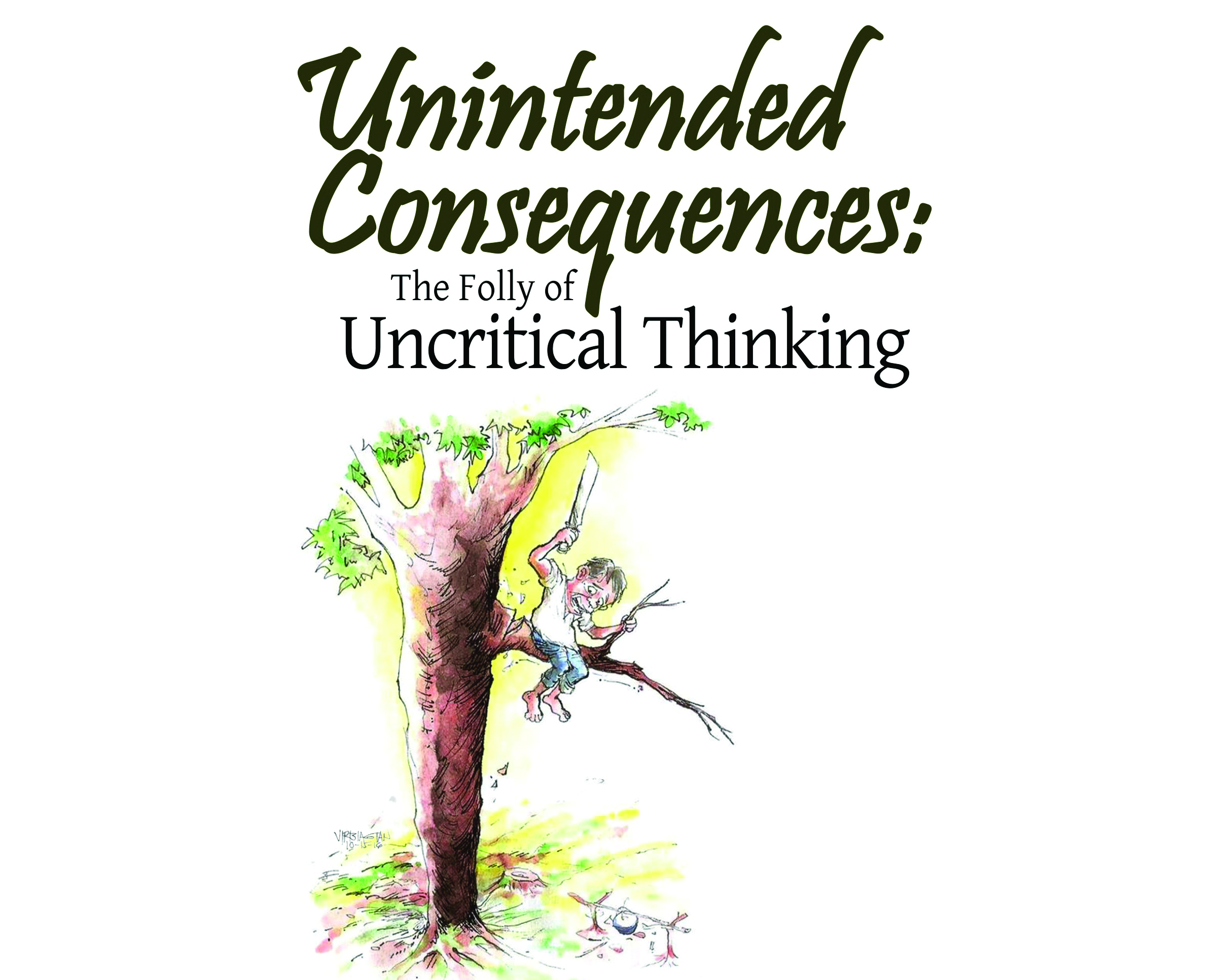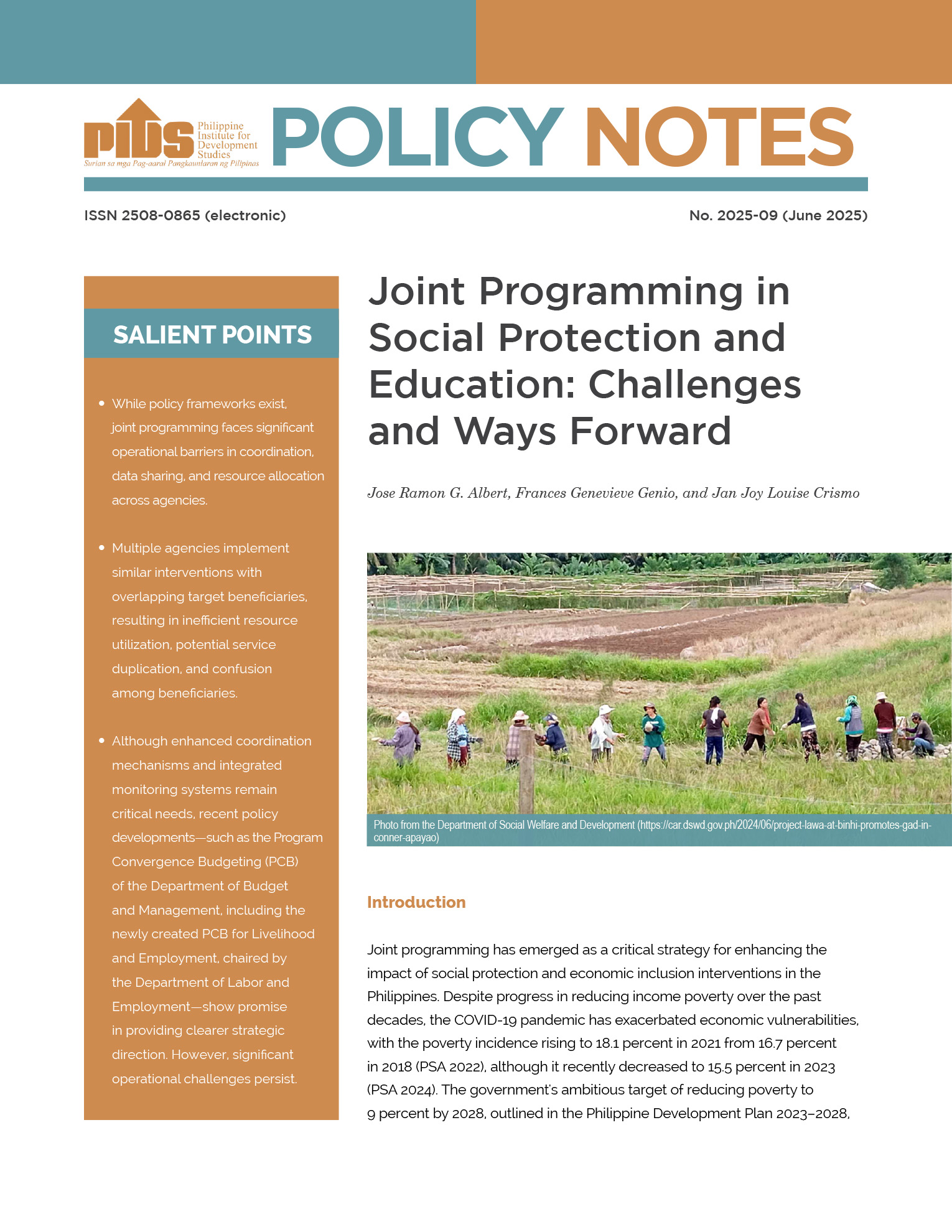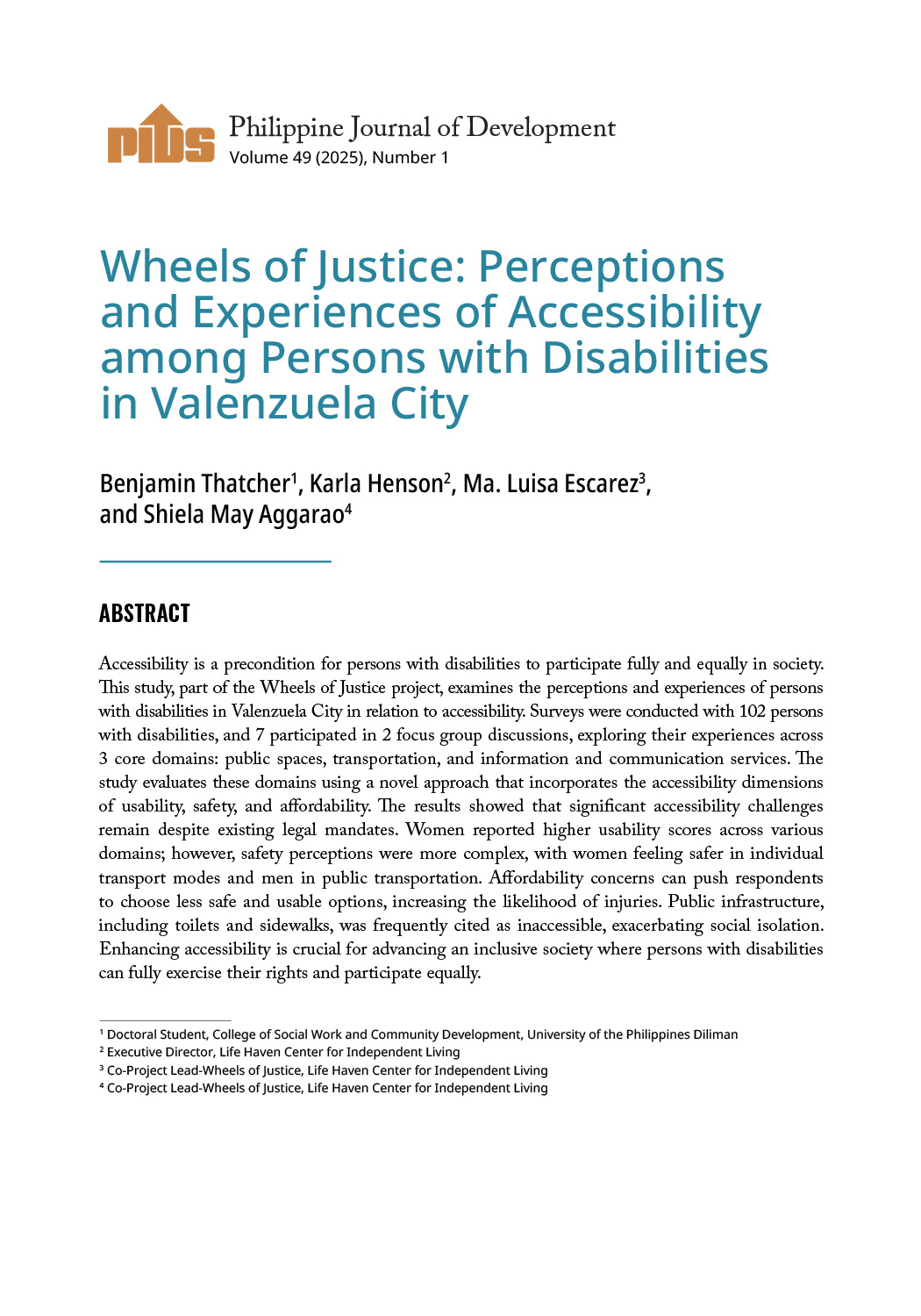
If not properly studied and evaluated, seemingly well-intended government policies and programs can have unintended consequences.
In a new book titled “Unintended Consequences: The Folly of Uncritical Thinking”, researchers from state think tank Philippine Institute for Development Studies (PIDS) discuss why policies can have unintended consequences and how they can be minimized.
Authored by various researchers and former professors, the 10 chapters discuss some of the most hotly contested issues in recent history. The topics covered in this book range from daily concerns like traffic, food, salary, rent, to larger industry and environmental concerns like overfishing and logging. The book also tackles controversial topics like sex education, minimum wage, conditional cash transfer, and unemployment.
All of these issues, authors stated, are tackled in the book to reveal the folly of uncritical thinking and the consequences, albeit unintended, that follow. Each chapter features arguments supported by rigorous attention to facts and clearly linked evidence in a language that is easily understood by most readers.
According to PIDS President Gilberto Llanto, this book challenges widely held assumptions about some socioeconomic problems and examines the policy solutions designed to address them.
“Noble intentions provide a good starting platform toward efficient policies, but they have to be supported by critical thinking and analysis, and an awareness of both the intended and unintended consequences of human agency,” Llanto explained.
He also maintained that by exposing the unintended consequences of those policy solutions, this book underscores the need for a more nuanced and evidence-based approach to the policymaking process.
Meanwhile, authors of this book stressed the importance of critical thinking in designing public policy and programs.
“It is not good for the country if the voting population and its leaders were to be swayed by arguments that solely appeal to their emotions and instinctive thoughts, unchecked by evidence-based critical analysis,” Vicente Paqueo and Aniceto Orbeta, who also edited the book with Llanto, maintained.
They also noted the rise of what is known in social media as a postfactual world, with policies increasingly driven by instinctive thinking, factoids, and even fake news planted in cyberspace and shared by millions of Internet users as if they were facts.
Thus, this book attempts to present evidence and policy implications in an engaging format that any ordinary, reasonable person could understand and find interesting. “If economic researches and policy notes are too technical for most readers, why not try writing it differently?” the authors argued.
Although the book is written in a light manner, readers are highly encouraged to read more deeply into the different issues discussed in the 10 chapters.
“Readers could look at the references that were used for each chapter. Beyond looking at those references, they could use the book to inspire evidence-based analytical discussions of the issues covered by the book as well as other public policy issues with colleagues, fellow students, and young leaders,” the authors suggested.
A formal book launch will be held at the PIDS office in Quezon City on May 10.
You may download an e-copy of the book here: http://pidswebs.pids.gov.ph/CDN/PUBLICATIONS/pidsbk2017-unintended_fnl.pdf
In a new book titled “Unintended Consequences: The Folly of Uncritical Thinking”, researchers from state think tank Philippine Institute for Development Studies (PIDS) discuss why policies can have unintended consequences and how they can be minimized.
Authored by various researchers and former professors, the 10 chapters discuss some of the most hotly contested issues in recent history. The topics covered in this book range from daily concerns like traffic, food, salary, rent, to larger industry and environmental concerns like overfishing and logging. The book also tackles controversial topics like sex education, minimum wage, conditional cash transfer, and unemployment.
All of these issues, authors stated, are tackled in the book to reveal the folly of uncritical thinking and the consequences, albeit unintended, that follow. Each chapter features arguments supported by rigorous attention to facts and clearly linked evidence in a language that is easily understood by most readers.
According to PIDS President Gilberto Llanto, this book challenges widely held assumptions about some socioeconomic problems and examines the policy solutions designed to address them.
“Noble intentions provide a good starting platform toward efficient policies, but they have to be supported by critical thinking and analysis, and an awareness of both the intended and unintended consequences of human agency,” Llanto explained.
He also maintained that by exposing the unintended consequences of those policy solutions, this book underscores the need for a more nuanced and evidence-based approach to the policymaking process.
Meanwhile, authors of this book stressed the importance of critical thinking in designing public policy and programs.
“It is not good for the country if the voting population and its leaders were to be swayed by arguments that solely appeal to their emotions and instinctive thoughts, unchecked by evidence-based critical analysis,” Vicente Paqueo and Aniceto Orbeta, who also edited the book with Llanto, maintained.
They also noted the rise of what is known in social media as a postfactual world, with policies increasingly driven by instinctive thinking, factoids, and even fake news planted in cyberspace and shared by millions of Internet users as if they were facts.
Thus, this book attempts to present evidence and policy implications in an engaging format that any ordinary, reasonable person could understand and find interesting. “If economic researches and policy notes are too technical for most readers, why not try writing it differently?” the authors argued.
Although the book is written in a light manner, readers are highly encouraged to read more deeply into the different issues discussed in the 10 chapters.
“Readers could look at the references that were used for each chapter. Beyond looking at those references, they could use the book to inspire evidence-based analytical discussions of the issues covered by the book as well as other public policy issues with colleagues, fellow students, and young leaders,” the authors suggested.
A formal book launch will be held at the PIDS office in Quezon City on May 10.
You may download an e-copy of the book here: http://pidswebs.pids.gov.ph/CDN/PUBLICATIONS/pidsbk2017-unintended_fnl.pdf












